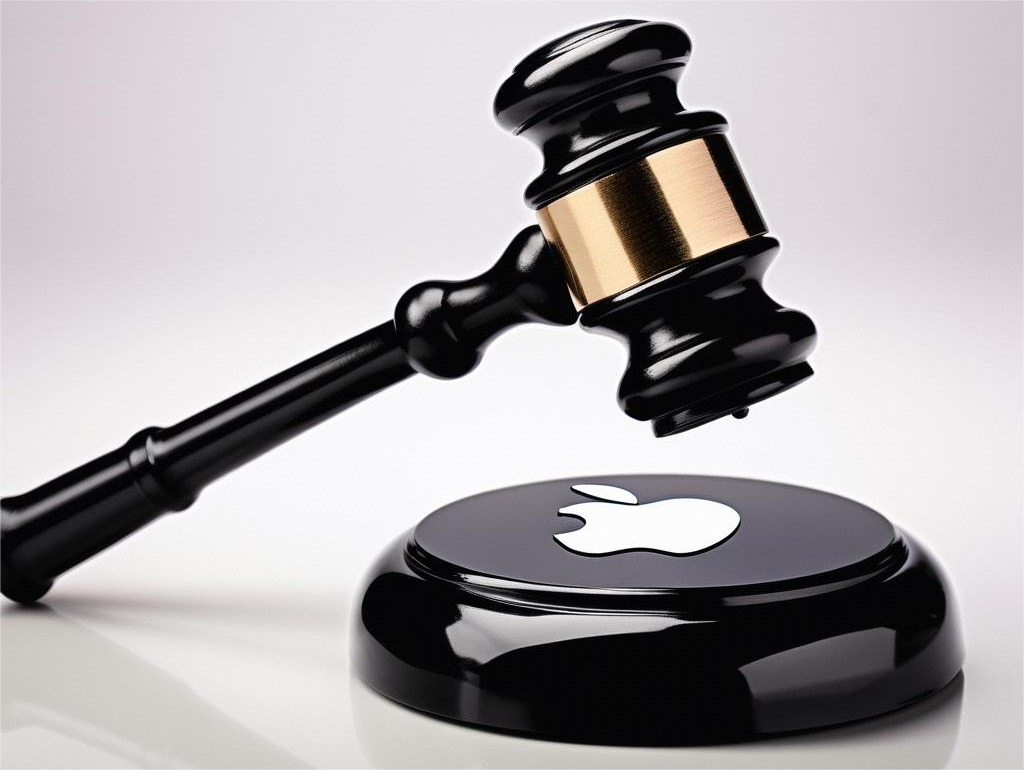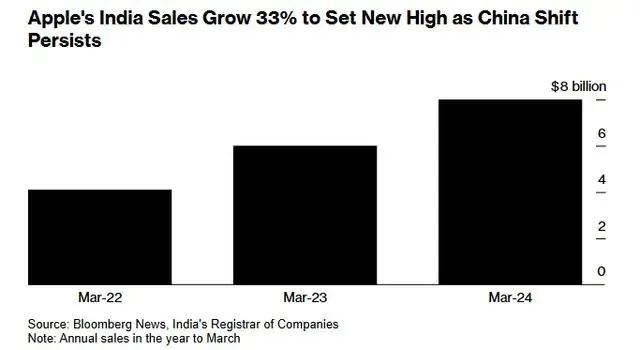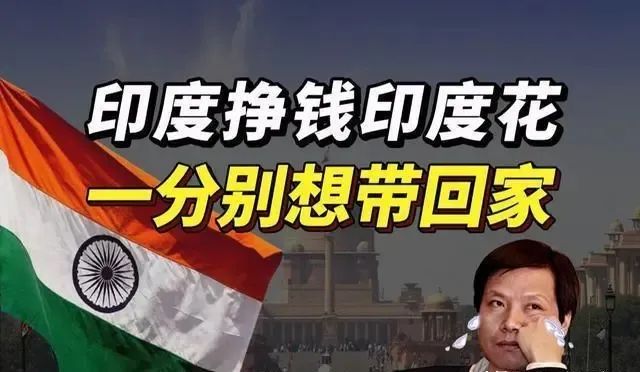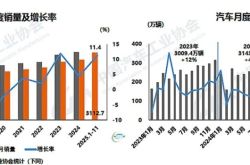Deep in Indian investigations, Apple is once again in hot water
![]() 07/18 2024
07/18 2024
![]() 518
518

Apple is once again in hot water.
Produced by | Zhuyi Finance
Apple has been on edge in recent years.
In terms of market value, after being comprehensively surpassed by NVIDIA a few days ago, the rhetoric of Apple being "at the end of its rope" and "lacking innovation" has once again become the focus of media attention. As a company known for its sales advantage, Apple has rarely introduced innovative products in recent years, which has become a focus of dissatisfaction among many Apple fans. Although Apple recently launched the new generation of spatial computing product, Apple Vision Pro, the market does not seem to be enthusiastic about it.
In terms of external factors, the sword of Damocles of antitrust has always hung over Apple's head – Apple itself cannot predict when it will fall apart due to antitrust issues.
According to foreign media reports, on July 11, the EU antitrust regulatory agency accepted Apple's proposal to allow competitors to use its own "Tap to Pay" (NFC) contactless mobile payment technology, which allowed Apple to ultimately avoid antitrust charges.

The reason why Apple allowed competitors to extend their business tentacles into its core business was mainly to avoid being forcibly punished by the EU – if Apple did not accept this clause, the EU's $40 billion fine would undoubtedly become a focus of Apple's losses.
Before the news of the EU's penalty against Apple was fully disclosed, on the other side of the world, Apple was faced with another major event.
This major event involves India, which has long had the saying "make money in India and spend it in India, don't take a penny home," and has quietly extended its "tentacles" to Apple.
According to a confidential report obtained by Reuters, Apple has been the target of an investigation by India's Competition Commission of India (CCI). In the latter's investigation report, India "found that Apple used its dominant position in the iOS app store market to force developers to use its proprietary in-app purchase system."
CCI concluded that: "The Apple App Store is an inevitable trading partner for app developers, who therefore have no choice but to comply with Apple's unfair terms, including the mandatory use of Apple's proprietary billing and payment system."
In short, Apple used its dominant position in the App Store to force app developers to use its billing and payment system. In the view of the CCI investigation department, Apple's iOS platform and App Store play a "significant role" in consumers' demand for digital products and services.
This is a clear case of using its market dominance to exercise monopoly power, and according to India's usual practice towards foreign companies, Apple will inevitably suffer significant losses.
Although Apple denied these actions, arguing that its market share in India is smaller than that of Android (Apple believes its app market share in India is less than 5%, while Android is over 90%), India will not naturally believe Apple's claims, as Apple has already achieved a certain level of success in terms of users and sales in the Indian market.

Publicly available data shows that Apple's sales in India in fiscal year 2023 (ending in the first quarter of 2024) reached a new high of nearly $8 billion, an increase of about 33% from $6 billion in the same period last year, demonstrating the rapid growth of the market, with the iPhone contributing more than half of the sales.
Therefore, it is natural and reasonable for India's authorities to reject the argument that Apple's market share is too small to compare with the Android market.
After the argument of market share failed to gain recognition from the Indian government, Apple brought up the issue of security performance – Apple believes that the in-app payment system enables it to maintain and develop the security of its App Store, thereby maximizing the protection of consumers' financial security.
Although Apple and the CCI investigation department have not yet responded to relevant comments, as India is known for treating foreign companies equally and unsparingly, it is unlikely to believe Apple's words.
However, for Apple, the outcome of the antitrust investigation in India may not be the worst. After all, for India, a country that has long had the saying "make money in India and spend it in India, don't take a penny home," whether India will take this opportunity to "sharpen its knives" against Apple is what Apple should pay attention to.

Globally, India's business policies have always been daunting for many foreign companies. Many foreign companies initially enjoyed VIP treatment when entering India, but once they made money in the Indian market, they were often slapped with unexplained charges by the Indian government. Chinese phone manufacturers such as Xiaomi, vivo, OPPO, and Honor have all been subject to huge fines or forced to sell shares at low prices by India under various pretexts. Foreign companies such as Coca-Cola, PepsiCo, Amazon, and Walmart have also been accused of various crimes and fined exorbitant amounts.
Whether Apple can reach a settlement with the CCI appears to have no other option besides significant losses.
While it is understandable that the EU and India have conducted various antitrust investigations against Apple, it is a major setback for Apple that the U.S. Department of Justice, in conjunction with multiple states, has filed an antitrust lawsuit against the company.
According to foreign media reports, as early as March 21 of this year, U.S. Attorney General Merrick Garland publicly stated that the U.S. Department of Justice and attorneys general from more than a dozen states had filed an antitrust lawsuit against Apple, alleging that "Apple has used its control over the hardware and software of Apple products to monopolize the mobile phone market, harming consumers, developers, and competitor companies."
In the lawsuit, the U.S. Department of Justice and 16 attorneys general argue that Apple's anti-competitive behavior has gone beyond its normal business scope of mobile phones and watches, and therefore specifically filed a lawsuit against Apple in court.
It is understandable for Apple to be investigated and fined in other overseas countries and regions, but being charged and sued by the U.S. Department of Justice in its home country is a significant blow to Apple's reputation.
However, this is not the end of Apple's antitrust battles globally. Judging from past cases of antitrust investigations and fines faced by Apple in different countries and regions around the world, Apple is bound to face a slew of antitrust investigations and fines in the future.
As one of the highest-valued tech companies, Apple is not only facing significant financial penalties but also a large number of investigations.
Perhaps this is the inevitable fate of a trillion-dollar company.





